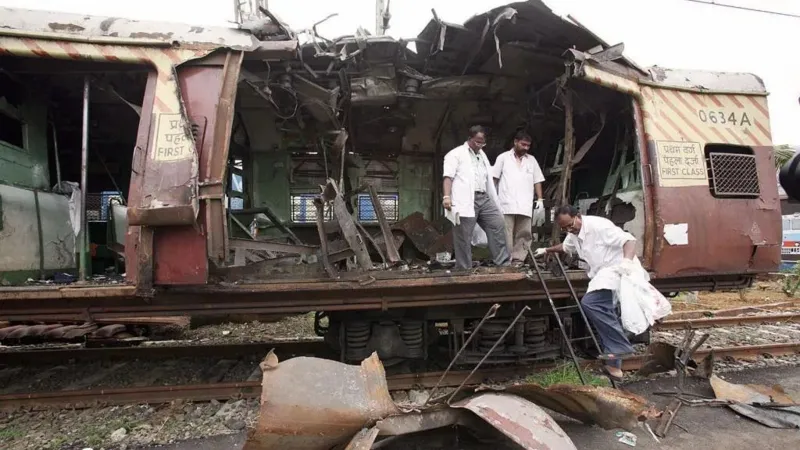India court pauses acquittal of 12 men in Mumbai train bombings case
India's Supreme Court has stayed a recent court verdict which acquitted 12 men who had been convicted for the 2006 Mumbai train bombings.

The Bombay High Court had freed the men on Monday, overturning a 2015 special court verdict which gave death penalty to five of the accused and life imprisonment to the remaining seven.
The high court said the prosecution had "utterly failed" to establish that the men had committed the crimes they had been convicted of.
On Tuesday, the Maharashtra government appealed against their acquittal. The train bombings had killed 187 and injured more than 800 people.
While pausing the high court order on Thursday, a two-judge bench of the Supreme Court said the men were not required to go back to prison.
The judges said that some of the observations made by the high court in its order could impact pending cases under the Maharashtra Control of Organised Crime Act (MCOCA), the Live Law website reported.
The 12 men had been convicted in 2015 by a MCOCA court - a special court set up to try cases that fall under the particular law.
On 11 July 2006, seven blasts ripped through busy commuter trains during the evening rush hour in one of India's deadliest attacks.
The bombs, packed into seven pressure cookers and put in bags, detonated within six minutes of each other.
The blasts took place in the areas of Matunga, Khar, Mahim, Jogeshwari, Borivali and Mira Road, with most on moving trains and two at stations.
Indian security agencies blamed the attack on Islamist militants backed by Pakistan, an allegation Islamabad denied.
The accused, who were arrested shortly after the blasts, have been in jail since then. One of them, Kamal Ansari, who had been sentenced to death, died of Covid in 2021.
The MCOCA court convicted the men of murder, conspiracy and waging war against the country. The prosecution appealed to confirm the death sentences, while the defence sought acquittal.
In July 2024, the Bombay High Court formed the two-judge bench to expedite the hearings.
Reports say that over the next six months, the court conducted more than 75 sittings and examined 92 prosecution witnesses and over 50 defence witnesses.
In the 667-page order on Monday, the court noted that the defence had questioned the credibility of the witnesses produced by the prosecution, as well as the confessional statements made by the accused.
It also acknowledged the defence's contention that the recovered evidence was not maintained in a "sealed condition throughout".
-BBC






